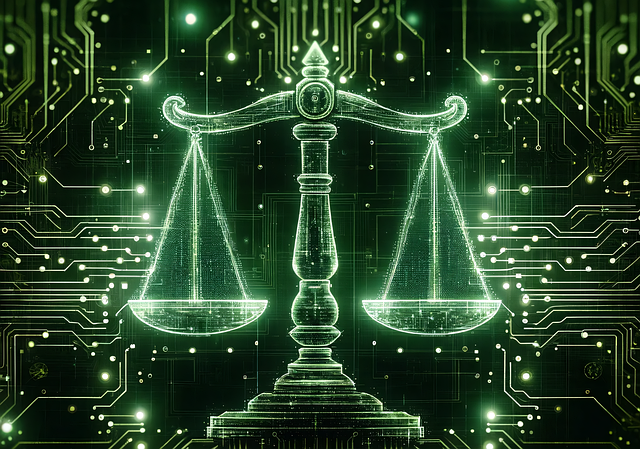Securities class actions offer investors a legal avenue to combat common employment law violations (CELVs) prevalent in 2023, such as compensation issues, non-disparagement agreements, and discrimination. These collective lawsuits aim for justice, compensation, and deterrence, with potential jury trials impacting both plaintiffs and defendants. As remote work complicates CELV allegations like harassment and unfair labor practices, businesses should focus on proactive measures to avoid costly legal battles. Understanding securities class actions as a strategy against CELVs is crucial in today's business landscape, where such violations can lead to significant settlements and encourage ethical conduct.
Securities Class Actions: Empowering Employees Through Legal Action
In today’s complex business landscape, understanding securities class actions is crucial for both investors and companies. This article delves into the legal framework surrounding these actions, focusing on common employment law violations in 2023. We explore how employees can navigate legal solutions and strategies to protect their rights. By analyzing recent trends, we provide insights that underscore the importance of proactive measures to mitigate potential risks and ensure fair treatment.
- Understanding Securities Class Actions: A Legal Framework
- Common Employment Law Violations: Uncovering the Trends in 2023
- Navigating Legal Solutions and Strategies for Employee Rights
Understanding Securities Class Actions: A Legal Framework

Securities class actions are a legal mechanism that allows investors to take collective action against entities for violations of securities laws. This framework is designed to protect the interests of numerous individuals who may have suffered losses due to similar misconduct, such as common employment law violations in 2023. In these cases, a group of investors (a class) joins together to file a lawsuit, claiming that they were all harmed by the same set of circumstances, typically involving white-collar and economic crimes.
The legal framework for securities class actions is structured around ensuring justice and compensation for those affected. These suits often lead to jury trials, where the evidence is presented and a decision is made that could have significant implications for both the plaintiffs and the defendants. The goal is not only to provide restitution to investors but also to deter future misconduct by holding companies and individuals accountable for their actions in the general criminal defense context.
Common Employment Law Violations: Uncovering the Trends in 2023

In 2023, understanding common employment law violations is more crucial than ever for businesses and legal professionals alike. Trends in securities class actions reveal a significant rise in lawsuits stemming from workplace misconduct, with a particular focus on violations related to compensation, non-disparagement agreements, and discrimination. These issues have become a hotbed of litigation, as employees increasingly seek justice and fair treatment in the workplace.
The rise of remote work and distributed teams has also contributed to these trends. Virtual interactions have brought to light new challenges, including allegations of unfair labor practices and harassment in digital spaces. As such, businesses must prioritize proactive measures to prevent violations, ensuring compliance with evolving employment laws and fostering a culture of ethical conduct. This proactivity includes comprehensive training programs, transparent policies, and robust internal investigations to address potential issues before they escalate into costly legal battles, which often result in complete dismissal of all charges or significant settlements within philanthropic and political communities. Moreover, the white-collar defense strategy should adapt to these shifts, employing innovative approaches to mitigate risks and protect both employees’ rights and corporate interests.
Navigating Legal Solutions and Strategies for Employee Rights

In today’s dynamic business landscape, employees across industries are increasingly navigating complex legal waters to protect their rights against Common Employment Law Violations in 2023. These violations can range from unfair wage practices and discrimination to retaliation and failure to provide a safe working environment. When such issues arise, understanding the legal solutions and strategies available is paramount. Securities class actions, for instance, offer a collective approach to holding employers accountable for widespread misconduct.
By banding together, affected employees can leverage their shared experiences to build a robust case against their former employers or companies engaged in unethical practices. This collective action not only facilitates access to justice but also sends a powerful message deterring similar violations in the future. Moreover, these high-stakes cases often result in significant settlements that provide much-needed relief to victims and serve as a deterrent for businesses looking to avoid indictment by prioritizing ethical conduct and compliance with employment laws.
Securities class actions and understanding common employment law violations in 2023 are crucial aspects of protecting employee rights. By delving into these legal frameworks, we can uncover trends and develop strategies that foster a more just and equitable working environment. Navigating the complexities of these cases requires a comprehensive approach, combining robust legal solutions with innovative strategies to ensure employees’ voices are heard. This knowledge is essential in revolutionizing workplace dynamics and upholding fundamental employee rights.






